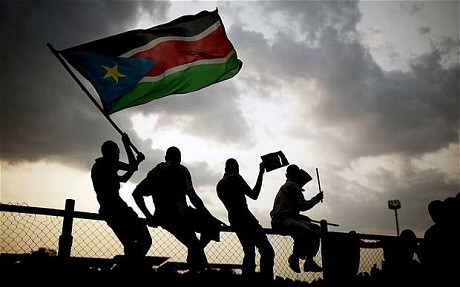
The Two Sudans, One Year On.
Following decades of internal civil strife, on July 11, 2011, the African nation of Sudan separated into two de jure sovereign states as the South finally gained its long-awaited independence. Yet those with any sort of intimate knowledge of Sudan will have viewed the scenes of jubilation across the South and the calm acceptance displayed by the North on the day of separation with caution. Although South Sudan’s moral claims to independence were never in doubt, its possibility of a peaceful future appeared, if anything, less certain following its separation from the North. A year on, it is a prescient time to reflect on how Africa’s most recently divorced couple are faring on their separate paths. For South Sudan, like …
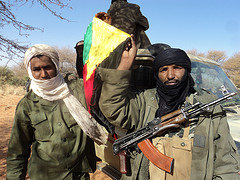
On the Recent Attacks in Timbuktu: A Q&A with Professor David Anderson
In a recent interview with Emine Taskiran, a journalist with Zaman, a Turkish newspaper, I responded to queries about the coup in Mali and the destruction of ancient shrines in Timbuktu . The situation is very fluid and receives little attention in the British press. It is best covered by Le Monde and All Africa. Emine Taskiran’s interview is reposted here with the kind permission of Zaman. Emine Taskiran: What is the structure of government in Mali? And what is the relation between the government and militant groups? David Anderson: The coup in Mali earlier this year removed an elected government, one of the longest standing democratic governments in Africa if you measure it simply by their length of time in office. …
ICC Captive Is Pawn in Struggle between Militias and the NTC
The key fault lines dividing the interim Libyan central government from both the militias and the international community are starkly illustrated in the ongoing saga surrounding the detention of four International Criminal Court (ICC) officials in Libya since June 7th. Among the detainees, Melinda Taylor has received the brunt of media attention, because she is a young and attractive Australian lawyer who was assigned by the ICC to represent the deposed dictator’s son, Saif al-Islam al-Qadhafi. She is currently being held captive by Zintani militiamen for ‘spying’. She allegedly possessed a digital pen camera and passed her client encrypted messages from Mohammad Ismael — a former crony of Saif’s, wanted for war crimes. It will likely be impossible for the …
The Rise of the Failed Middle Income State
Last week, Foreign Policy and the Fund for Peace released their annual ranking of the world’s failed states. The list is based on indicators of 12 different measures of state failure, ranging across social, economic, political, and military factors. This year 34 countries fall into the “Alert” category, denoting those in the worst shape. Somalia and DRC lead the way; the bottom five countries are all in sub-Saharan Africa. What I think is most interesting about this year’s list is the fact that 12 of the “Alert” states – over a third – are middle-income countries. This is a new high, and indeed the emergence of failed middle income states is a relatively new phenomenon; back in 2006 there were only …
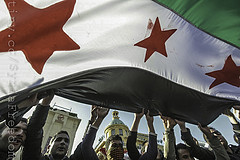
Lifting the Siege: Protecting Civilians in Syria
Even the most zealous ideologues have been challenged approaching Damascus. Thrown from their horse, they have been left dazed and partially sighted, forced to re-examine their norms. Damascus has presented such a challenge once again in recent months. This time, it is the new norm in international relations known as R2P—the responsibility to protect—that has been temporarily unseated. It is a simple formula. This important new norm contends that it is the international community’s responsibility to protect civilians when a state fails in its responsibility to do so. R2P has made swift progress in the international community since its adoption (in a watered-down form) at the United Nations Summit in 2005, gaining acceptance at the same time as the rise …
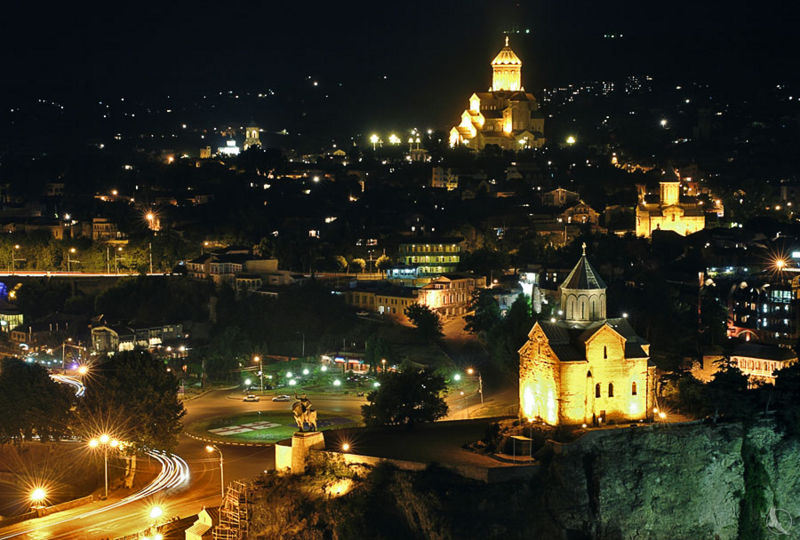
The Caucasus: A case of mistaken identity?
What matters more: who you think you are or who others think you are? Addressing a major gap in IR scholarship, the importance of identity in influencing state behaviour was first elucidated by writers within the Constructivist school of thought, most notable among whom was Alexander Wendt. In his seminal article “Anarchy is what states make of it”, Wendt draws attention to the significance of identity by employing the metaphor of “the looking-glass self”, arguing that states form identities of themselves through their interactions with other states: that “the self is a reflection of an actor’s socialization”(Wendt 1992:404). Such a theory seems to predict that a state’s identity and how others perceive it should bear correlation. How, then, do we …
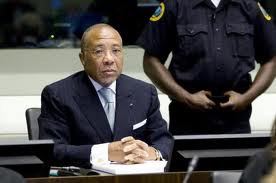
Charles Taylor trial highlights ICC concerns
After a long and expensive trial, the Special Court for Sierra Leone will finally give its verdict on whether former Liberian president Charles Taylor is guilty or innocent of war crimes and crimes against humanity. While there is little doubt Taylor commanded militias that were responsible for some horrific acts of violence in his home country, Liberia, today’s judgment will consider the extent to which he should be held responsible for ordering and condoning various war crimes (including murder, sexual violence, and enslavement) committed in neighbouring Sierra Leone. Amongst Western governments and their publics, there is widespread agreement that prosecuting Taylor has been the right and proper thing to do. The West considers the Special Court of Sierra Leone as …
‘Federalism’ in Libya: Already in the dustbin of History
In today’s Libya, local is king. Yet, if Libya is to become a functioning state governed by an elected leadership capable of empowering its citizens and providing an equitable distribution of its resource wealth, then, the interim government of the National Transitional Council (NTC) must become king. In the run-up to the June elections many militias and civil society organizations are lambasting the interim government’s mission to centralize authority rather than its lacklustre results at achieving that task. On March 5th, notables in Benghazi — Libya’s second city and capital of the Eastern region of Cyrenaica — proposed to compensate for the ineffectiveness of the central NTC authorities by asking them to relinquish certain powers to sub-state bodies such as …









